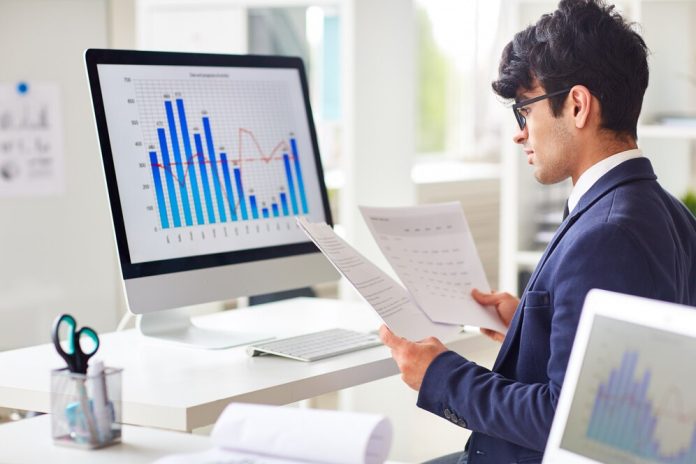Managing the finances of a sole trader business can be a challenging task. From invoicing to expense tracking, accurate financial management is crucial for staying organised and compliant with tax regulations. That’s why choosing the right accounting software for sole trader is essential. In this blog post, we will explore the importance of accounting software for sole traders, along with the top features to look for and how it can streamline your finances. By the end, you’ll have a better understanding of how accounting software can contribute to the success of your sole trader business.
The Importance of Accounting Software for Sole Traders
Accurate financial tracking is crucial for sole traders to stay organised and compliant with tax regulations. By using accounting software specifically designed for sole traders, they can efficiently manage their finances and save valuable time.
One of the key benefits of accounting software for sole traders is the automation of tasks such as invoicing and expense tracking. This automation eliminates the need for manual entry, reducing the risk of errors and saving time that can be better spent on growing the business.
Additionally, accounting software enables sole traders to generate financial reports easily. These reports provide valuable insights into the performance of their business, allowing them to make informed decisions and plan for the future.
Maximising Efficiency with the Right Accounting Software
When it comes to managing finances as a sole trader, choosing the right accounting software can make all the difference in maximising efficiency. Here are some key ways accounting software can help:
1. Streamline routine financial tasks:
The right accounting software can automate tasks like creating invoices and tracking expenses, saving you valuable time and reducing the chances of manual errors. By eliminating repetitive manual tasks, you can focus on what matters most – growing your business.
2. Integration with other business tools:
Look for accounting software that integrates seamlessly with other essential business tools, such as banking and payment platforms. This integration allows for smoother workflows and eliminates the need for switching between different applications, further increasing efficiency.
3. Embrace flexibility with cloud-based software:
Cloud-based accounting software provides the flexibility of accessing your financial data whenever and wherever you need it. Whether you’re working from home, on the go, or at the office, you can stay connected to your business and maintain productivity.
By choosing the right accounting software, sole traders can streamline their financial processes, reduce manual errors, and save valuable time. This efficiency allows you to focus on what truly matters – growing your business and achieving success.
Top Features to Look for in Accounting Software for Sole Traders
When choosing accounting software for your sole trader business, it’s important to consider the features that will best meet your needs. Here are some key features to look for:
- User-friendly interface and intuitive navigation: Look for accounting software that is easy to navigate and understand, even if you don’t have a background in accounting. This will make it easier for you to effectively use the software and streamline your financial management.
- Automated bank feeds: Look for accounting software that can automatically import and reconcile your bank transactions. This feature saves you time and effort by eliminating the need to manually enter each transaction.
- Mobile app support: Consider accounting software that offers a mobile app, allowing you to manage your finances on the go. This enables you to stay connected with your business and access your financial data whenever and wherever you need it.
Streamlining Your Finances: How Accounting Software Can Help
Running a sole trader business involves handling various financial tasks, such as invoicing, expense tracking, and financial reporting. Accounting software can simplify these processes and help streamline your finances. Here’s how:
1. Centralising Financial Data
Accounting software allows you to store all your financial information in one place. This eliminates the need for multiple spreadsheets or disparate systems, making it easier to keep track of your income and expenses.
2. Automated Invoicing and Payment Reminders
With accounting software, you can automate the process of creating and sending invoices. This ensures that your clients receive timely invoices, which improves cash flow. Additionally, you can set up payment reminders to minimise late payments and improve your overall financial management.
3. Real-Time Visibility
Accounting software provides real-time insights into your income and expenses. This allows you to make informed financial decisions and helps you plan for the future. By having a clear picture of your financial situation, you can identify areas for improvement and take necessary actions to optimise your profitability.
4. Integrated Tax Filing
Many accounting software options integrate with tax software, simplifying the tax filing process. This ensures that your tax liabilities are accurately calculated and reduces the risk of errors. By streamlining this important task, you can focus on running your business with confidence.
In summary, accounting software can streamline your financial processes by centralising your data, automating tasks, providing real-time visibility, and simplifying tax filing. By leveraging the right accounting software for your sole trader business, you can effectively manage your finances and increase your profitability.
Choosing the Best Accounting Software for Your Sole Trader Business
When selecting accounting software for your sole trader business, it’s crucial to consider your specific needs and requirements. Here are some factors to keep in mind:
- Scalability: Ensure that the accounting software can support the growth of your sole trader business. Look for a solution that offers the flexibility to handle increased transaction volumes and additional features as your business expands.
- Integration Capabilities: Check if the accounting software can integrate seamlessly with other essential business tools and platforms that you use. This integration can streamline workflows and avoid the need for manual data entry, saving time and reducing errors.
- Reviews and Comparisons: Read reviews and compare features of different accounting software options. This will help you assess whether the software aligns with your business needs and budget. Pay attention to user feedback and ratings to gain insights into the software’s reliability and customer support.
By carefully evaluating these factors, you can choose the best accounting software that will effectively meet your sole trader business’s requirements and contribute to your success.
Boosting Accuracy and Organization with Accounting Software for Sole Traders
Using accounting software can significantly enhance the accuracy and organisation of a sole trader’s financial records. Here are some key ways in which accounting software can help:
- Automated bookkeeping features: Accounting software reduces the risk of human errors in financial calculations and recording. With automated processes, sole traders can ensure the accuracy of their financial data.
- Categorization and tagging options: Accounting software provides efficient organisation and tracking of expenses and income. Sole traders can easily categorise and tag transactions, simplifying the process of tracking and analysing financial information.
- Regular backups and data security: A reliable accounting software ensures regular backups and implements necessary data security measures. This protects sole traders’ financial information from loss or unauthorised access, providing peace of mind.
By utilising these features, sole traders can maintain accurate financial records, avoid costly errors, and streamline their overall financial management processes.
Increasing Profitability through Effective Accounting Software
Accurate financial records provided by accounting software can help sole traders identify areas for cost reduction and revenue optimization. By having a clear overview of their income and expenses, sole traders can make informed decisions on where to cut costs and increase efficiency, ultimately boosting profitability.
The ability to generate detailed financial reports and analysis is another key advantage of using accounting software. These reports provide valuable insights into the financial health of the business, enabling sole traders to identify trends, opportunities, and potential risks. With this knowledge, they can make strategic decisions to maximise their profitability.
Integration of accounting software with tax software is another crucial feature that can help sole traders increase profitability. By automating the tax filing process and ensuring compliance with tax regulations, sole traders can potentially reduce their tax liability. This allows them to keep more of their hard-earned profits and reinvest them back into their business.
Conclusion
In conclusion, choosing the right accounting software for sole trader is crucial. in order to achieve success in their business. Accurate financial tracking, time-saving automation, and easy generation of financial reports are just a few benefits that accounting software can provide. By maximising efficiency, streamlining finances, and boosting accuracy and organisation, sole traders can focus on growing their business and increasing profitability. It is important to carefully consider the features, integration capabilities, scalability, and budget when selecting accounting software for your sole trader business. With the right accounting software, sole traders can effectively manage their finances, make informed decisions, and stay compliant with tax regulations.Contact us at Account Ease or call us at 0208 133 4599.






